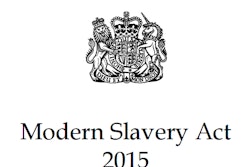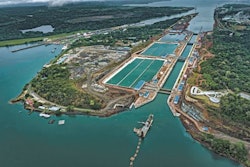
The Modern Slavery Act (MSA) is increasing engagement, including from directors, on issues of risk within supply chains, and leading to a greater focus on policy development, risk assessment and monitoring of modern slavery, according to a new survey carried out by Historic Futures and Ergon Associates.
However, when it comes to data collection and measurement, very little useful data beyond immediate suppliers (Tier 1) is collected about supply chains and supply risk. Also, most companies have yet to take action to address their identified risk, or put in place mitigation and remedial action plans related to modern slavery.
The survey aimed to find out the impact that the MSA is having on businesses across the United Kingdom.
It found that the MSA, so far, had a positive effect on raising awareness and engagement on the issue of modern slavery within internal teams, and led to the development of better plans and improved risk assessment frameworks. A notable finding is the increase in engagement with the topic from company directors, which is aligned with the act’s objectives. These are positive outcomes that occurred in a relatively short timeframe following the act coming into effect.
What has yet to occur is the collection of sufficient information to effectively identify and monitor risk. Moreover, most data collection approaches are relatively ad hoc, and there is little use of defined internal resources or use of third-party organizations, either commercial solution providers or collaborative nongovernmental organizations (NGO)/trade union partners.
The study found that there are some areas in which emerging good practices exist. These include better and more consistent risk assessment, such as more use of collaborative risk assessment and due diligence processes, either through NGOs, public bodies and other non-business actors, or through commercial service providers.
Tim Wilson, co-founder and CEO of Historic Futures, experts in supply chain mapping, product integrity, traceability and supply chain risk monitoring, said, “Global supply chains are often incredibly complex, so much so that many companies don’t know where to start to find out what is happening deep within them. However, it seems that the MSA encouraged senior management to recognize the importance of understanding supply chain risks, and that it is time to step up and start the process to find out.”
Steve Gibbons, director of labor and human rights at Ergon Associates, said, “The requirements of the MSA appear to have increased business engagement on the issue, helping develop understandings of risks in business operations and supply chains. This is very positive, however, the process by which risks related to modern slavery are understood by business still need further development, and it looks like more efforts need be made to define, and take corrective and remedial action.”














